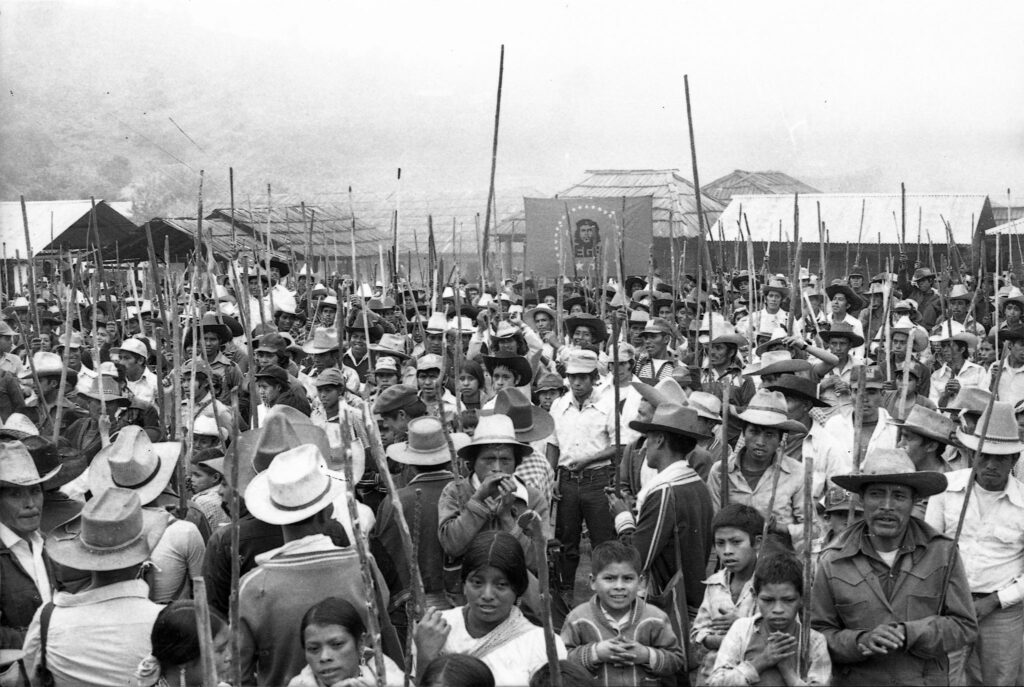Responding to Trump’s Latin America Pivot
With the US constantly breathing down our necks, Mexico knows perhaps better than most the danger that US imperialism represents for the countries of Latin America. From the forced annexation of half our territory in 1848 to numerous other US invasions, Mexico has endured the worst of the interventionist and expansionist Monroe Doctrine.
It is for this reason that — despite the mixed legacy of PRI-led governments — 20th century Mexican presidents frequently sought to act as a bulwark against US imperialism in the region, stepping up rhetorically or diplomatically against US interference and human rights abuses. To wit, Mexico refused to abandon Cuba following the 1959 Revolution, it served as a haven for political exiles fleeing US-backed dictatorships in the Southern Cone, and Mexican officials spoke out explicitly against fascism.
Perhaps the clearest expression of Mexico’s defense of popular sovereignty in the face of US aggression was the country’s participation in the Contadora Group in the 1980s, a period marked by heightened US involvement in Latin America.
Together with Colombia, Venezuela and Panama, Mexico promoted a Latin America-led initiative aimed at promoting peace, defending sovereignty and advancing social justice in Central America through diplomacy and negotiated solutions. It was, in other words, a direct answer to US-backed military interventions in the region. The Contadora Group did not stop US military involvement, but it put negotiated settlements, non-intervention and respect for sovereignty front and center, helping to produce frameworks ultimately leading to diplomatic solutions.

Two recent developments indicate that the US is once again pivoting to focus on Latin America.
According to a recent US government document, the Trump administration plans to redirect $1.8 billion in foreign aid from traditional development programs to an “America First” strategy targeting “Marxist, anti-American regimes” in Latin America, specifically naming Venezuela, Cuba and Nicaragua. A draft of the Pentagon’s National Defense Strategy outlines a similar pivot to Latin America, prioritizing defense of the US homeland and other activity in the region and marking a shift away from China and Russia.
The threat to Latin American cannot be overstated. Every time the US takes a renewed interest in our region, its territories and its resources, it translates into more illegal US interventions and human rights abuses by US-backed regimes. Given US bipartisan disregard for international law, and Trump’s track record of pushing the envelope even further, we conclude that this new strategic retreat by the US back to its “sphere of influence” spells danger for the entire region.
While Mexico already has plenty on its plate regarding the US-Mexico bilateral relationship, we cannot afford to sit on the sidelines as Trump seeks to sink US teeth back into our region. An effort to undermine sovereignty in one country undermines it for all; the defense of Mexican sovereignty necessarily passes through the defense of sovereignty of all Latin American nations.
President Claudia Sheinbaum has repeatedly stated that the Estrada Doctrine — which asserts that peace, sovereignty and non-intervention must take precedence over external interference — guides Mexico’s foreign policy. This strategic retreat by the US back into the Western Hemisphere demands an equally unambiguous response from Mexico now.
Mexico can use its voice and standing to once again act as a bulwark against US imperialism.
-
Genocidal & Extractive Capitalism
This week, the United States claimed to be negotiating to avoid war with Iran. It was merely a cover for a new attack. Where are the efforts to stop it?, asks Mexican Supreme Court Minister Lenia Batres.
-
Trump Will Not Take Our Oil
Venezuela’s oil belongs to the Bolivarian Republic. Mexican oil belongs to the people of Mexico. If the current administration decides to trade it with Cuba or any other country, it has every right to do so. Mexican oil does not belong to the US nor to Donald Trump.
-
Socialism & Anti-imperialism in Mexico During the 1970s & 1980s
Widespread anti-imperialist mobilizations served as a pressure mechanism against the subservient and collaborationist policies of regional governments.




